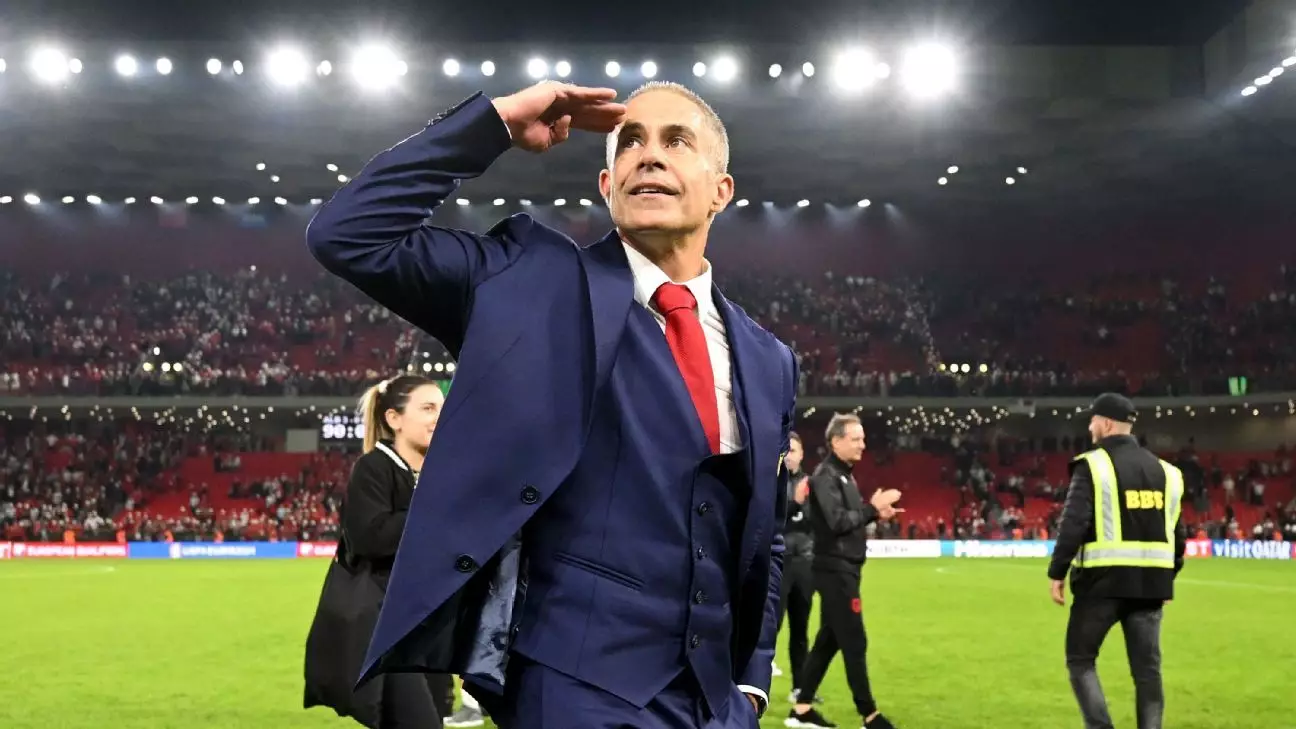Being a national team coach is no easy task. It requires dedication, analysis, and a deep understanding of the players and the country they represent. Sylvinho, the Brazilian coach in charge of the Albania national team, knows this all too well. This article delves into a day in his life, showcasing the challenges and responsibilities he faces as he leads the team on their journey to qualify for Euro 2024.
Sylvinho’s appointment as the coach of the Albanian national team came as a surprise to many. Taking over from an experienced Italian coach, he had big shoes to fill. However, his multilingual abilities, including fluency in Portuguese, Italian, Spanish, and English, played a crucial role in his selection. It was his Italian language skills that impressed the federation president during their initial meeting in Milan. From that moment on, Sylvinho knew he had to immerse himself fully in the Albanian culture and language.
Relocating to Tirana, the capital of Albania, was a significant change for Sylvinho. Leaving behind his family in Porto, he realized the importance of experiencing the day-to-day life of the country and the federation. He and his assistant coach, Doriva, formed the foundation of the coaching staff. While Sylvinho is known for his energy and proactivity, Doriva brings a sense of balance and calmness to their partnership. Together, they create a harmonious coaching dynamic that benefits the team.
One of the key aspects of Sylvinho’s coaching style is his attention to detail. He spends his mornings analyzing the players on his potential waiting list, meticulously studying their performances in recent games. While video analyst Alarico Marco Rossi provides the data, Sylvinho ensures he is fully up-to-date on his players. The team also benefits from the expertise of Portuguese analyst Rui Pedro Vieira de Souza, who provides additional insights based on his observations of the team’s previous matches.
In preparation for the upcoming Euro 2024 qualifying matches, Sylvinho and his coaching staff gather to watch recordings of the team’s opponents. Focused and attentive, they analyze every aspect of the game, paying close attention to defensive tendencies and attacking strategies. Sylvinho takes the lead at the head of the table, while Doriva supports him with his keen eye for detail. Ervin Bulku, the coach of the U19 team, also contributes his valuable insights, acting as a vital link between the coaching staff and the players.
Throughout his coaching career, Sylvinho has had the opportunity to work in some of Europe’s major markets. However, coaching the Albanian national team provided him with a chance to explore new talent. One notable discovery was Jasir Asani, a left-footed center-back. Sylvinho and his team conducted an extensive search for a player with this specific characteristic, and Asani fit the bill perfectly. After analyzing his performances, they wasted no time in bringing him into the team.
Unlike his coaching experiences in cities like São Paulo, Tirana offers Sylvinho a more relaxed atmosphere. During lunch breaks, he takes leisurely strolls through the peaceful streets, unaffected by the pressures of fans and the media. The short walk to the seafood restaurant chosen by Bulku provides an opportunity for the coaching staff to engage in casual conversations about various cultural curiosities. The camaraderie among Albanians, Italians, and Brazilians forms a unique bond within the team.
The linguistic aspect of coaching the Albanian national team presents its own set of challenges. While Sylvinho has acquired a basic understanding of the Albanian language, he acknowledges that conveying his ideas to the players in their native tongue is impossible. The day-to-day conversations during training weeks occur in a mixture of languages, depending on the players’ fluency. However, before each game, Sylvinho ensures that his pre-match talk is delivered in the players’ own language, with the help of Bulku’s translation skills.
Coaching a national team comes with a unique set of complexities, including the geopolitical background of the region. Sylvinho, along with Doriva and Pablo Zabaleta, have had to familiarize themselves with the political landscape that surrounds Albania. They recognized the importance of understanding the conflicts and sensitivities within the country, as well as its ties to neighboring nations. Representing a nation goes beyond mere sporting achievements; it involves recognizing the cultural and political sensitivities of the people they represent.
Sylvinho’s journey as the coach of the Albanian national team showcases the dedication and challenges that come with such a prestigious position. From analyzing player performances to overcoming linguistic and cultural barriers, he embraces his role and responsibilities with enthusiasm. With his coaching staff by his side, he navigates the complexities of coaching a national team, aiming to guide Albania to success in their pursuit of Euro 2024 qualification.
